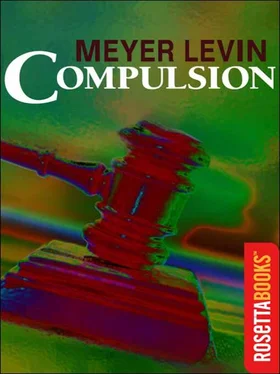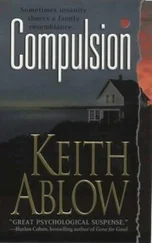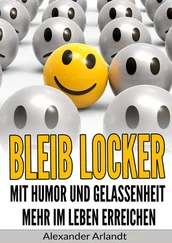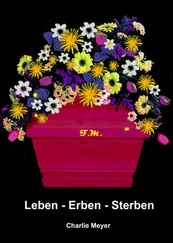Then the girl called from behind, “How about going to the show at the Tivoli? Pola Negri’s playing.” Artie quickly made up a big story in his bootlegger rôle about having to meet a certain connection in a certain spot in Little Italy. No dames.
Judd pulled up at the corner, and just as the girls were beginning to look angry, Artie slipped his a ten-spot, saying that would take them to the show and maybe the Stutz would be waiting when they came out, if he finished his deal.
Judd’s girl, smiling, offered her mouth, repeating, “I hope you won’t think we’re that kind.” He couldn’t stand to kiss her; he zoomed the car away before Artie was half settled beside him.
Artie shook his head, laughing. What a pair of bags. With a bag like that he never could get really excited.
Only then Judd understood that Artie hadn’t done it. And suddenly his own nausea was gone. Artie kept on talking. It was no kick with a cheap slut, a semipro. And Judd said females were disgusting anyway; all of them were disgusting. It was a foul trick of nature to make a man need to consort with the creatures. They took a swig to get the taste out, and then Artie had an idea for some fun. Back on 63rd were some sheds.
They drove west again and Artie picked out a shed at the end of a vacant lot, just an old shed – couldn’t hurt anybody. He got out of the car and found some old newspapers and cardboard. He lighted a little bonfire against the wall of the shack. They waited till it caught on, then circled the block, coming back to see the whole shed ablaze.
Artie put his arm on Judd’s shoulder, watching. Judd felt cleansed. He wished he had thought of this himself. How Artie’s eyes glittered! He felt the wine of full friendship in them at last.
Soon they heard the fire engines coming.
Lying on his bed, one ear cocked for footsteps, Judd restrained himself. He wouldn’t give himself to the final exciting imaginings, for at any moment Max or his father might come. At last he heard them on the stairs, talking; Max was going to drive downtown to a show, and would leave the old man for a card game at the club.
Good! They wouldn’t be here when Artie came.
And the image was upon him, of the first time with Artie. On the train going up to Charlevoix to be Artie’s summer guest. It was an overnight ride, and Artie had taken a compartment, and once they were in it Artie had unloaded a bottle and a deck of cards – this would be one big night.
Judd had taken along the Perfumed Garden in French, and he translated a few of the best parts to Artie while they played a couple of hands of casino, a nickel a point, Judd winning. And all the time they were drinking, and Artie was getting looser, the way he had of clowning so you couldn’t tell exactly whether he was tight or only pretending to be tight. Artie talked of all the girls they would have in Charlevoix – he had them lined up; he knew some terrific lays on the farms around there; it would be a great summer – and all the while Judd kept feeling freer and bolder, and the pounding was in him.
He hardly knew how – perhaps he was half drunk himself, maudlin – they were patting each other. “Old pal.” Maybe singing. Then they started to go to bed. Artie lost the toss for the lower, but refused to abide by the decision. He dived into Judd’s bunk, and Judd started to push Artie out; and then horsing around like that, wrestling, they lay extended together to catch their breath, and when it began Artie made no sign, pretending to be half-drunkenly half asleep. Then Artie laughingly muttered a few dirty names, and let it happen as if he were too drunk to know or care.
In the morning they said nothing about it. The Straus car was at the station for them, and they drove up to the terrific showplace the Strauses had on the bluff over the lake, a reproduction of a castle on the Rhine.
They had adjoining bedrooms.
“Junior,” Max called from the hallway, and Judd leaped up from the bed and went to the door, to be told about their going downtown. Then he forced himself to sit at his desk again and look at his law notes.
As he hung up the receiver after calling Judd, Artie experienced one of those dark surges of feeling, as if he could have sent a wave of death through the telephone and seen Judd stricken by it, paralysed, turned to stone. Electrocution by telephone. Himself, the master criminal. He’d call up his enemies, and then they would be found dead, telephone in hand.
He saw Judd, sitting like that. And picturing it, Artie felt a flash of comprehension: Judd wanted to be caught and executed. For if you left things around like that, the glasses, the typewriter, you wanted to get caught. Like the kind of girl that leaves hairpins all over the back seat.
So Judd was a terrible danger to him. Rage and grief shuddered through Artie. Why did that punk bastard have to go and spoil the whole thing! All the other things he had done by himself, were done without a trace. The last one in winter, the ice-cold night, the upturned coat collar covering the face, the tape-wound chisel in his pocket, hard against his hand, then the body falling off the pier into the lake. Had he done it, or only pictured it to himself?
That was the sad part of doing things all by yourself, on your own. You lost them. You really needed someone else to be in a thing with you so that the deed stayed alive between you.
Then all the little things he and Judd had done together, the fires and the thing at the frat house in Ann Arbour – all those things rose up in Artie and pleaded for Judd. Pleaded for dog-eyes Jocko. But Artie wasn’t sure. He would decide about Judd after they had got rid of the typewriter. Perhaps, if the feeling came over him… He put his automatic into his pocket.
Artie did not fail to call out good-bye to the family, flashing a charming smile at Mumsie’s guest. Then, though it was the wrong direction for Judd’s, he walked past the Kessler house.
In that house, were they getting any clues leading to him? Ah, let them follow him now! Instead of leading them to his accomplice, he would throw them off the track! And Artie turned up Hyde Park Boulevard, toward Myra’s. Let Judd sit waiting, worrying.
In the gilded lobby of the Flamingo there sat the usual two groups of little ladies in retirement, and Artie could sense the buzz among them as he passed toward the elevators: there goes the brilliant Straus boy, youngest university graduate, they were saying, and surely plotting about catching him for their nieces and granddaughters.
Myra’s mother herself opened the door, welcoming him, but with an air of confusion. “Why, Artie! Hello, Artie. It’s so nice to see you, but you know Myra’s just going out.”
Myra bubbled out from her room; she had not quite finished dressing, and was holding a sash for her beaded green frock. He and she always laughed as soon as they saw each other, a kind of guilty conspiratorial laugh, like the times as kids when they were almost caught playing doctor. Yet despite the laughter, Myra’s eyes were always melancholy, befitting a poetess, and she talked in breathless rushes of words, curiously like Artie.
Her date was a goof, she said, a football player. She had been roped in, but “When he is silent, I can imagine he is a Greek god. Oh, I want to have lots of lovers, like Edna St. Vincent Millay.”
While Myra rushed back to her room to find a poem she had just written, Mrs. Seligman managed to inquire conventionally about his family. How was his mother? How was his father’s blood pressure?
Fine, Artie said, everyone was fine, but Mumsie was rushing to Charlevoix tomorrow morning with little Billy, because of that terrible crime – wasn’t it a monstrous thing? And spying a huge box of candy, Artie poked his finger into one of the chocolates. “Aha! Liqueur!” he cried, sucking the finger, and then poking it down the entire row of candies while Mrs. Seligman giggled in horror – “Really, Artie!”
Читать дальше












